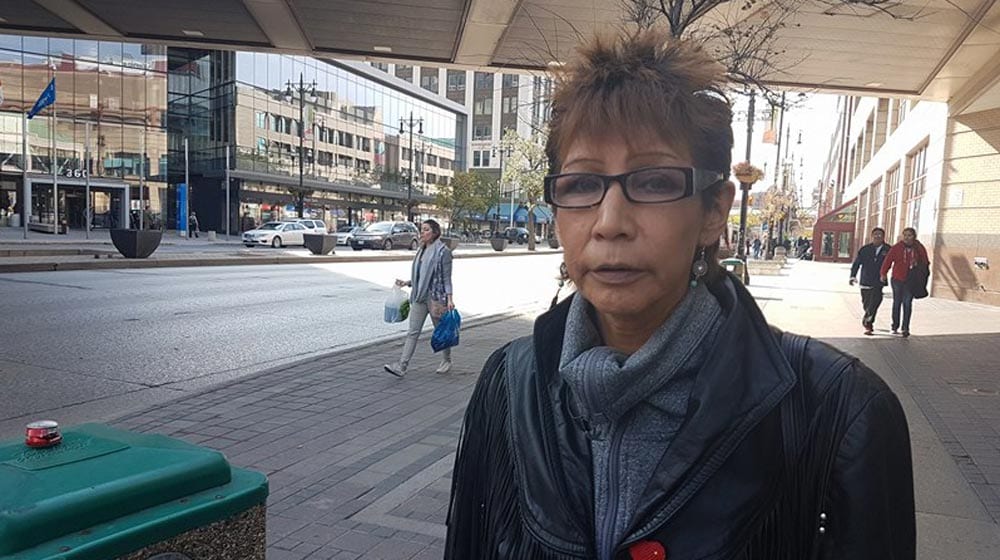APTN News
Frustrated families are continuing to vent about aftercare issues with the National Inquiry for Missing and Murdered Indigenous Women and Girls (MMIWG).
“They’re telling me to go to (a third-party office) for printing and scanning of my receipts,” said Sue Caribou, an MMIWG family member who testified in Winnipeg in October.
“I don’t know if Elders give invoices.”
Caribou says she is “exhausted” by the lack of familial support. She says the inquiry has only one case support worker in Manitoba to help dozens of people wanting to be reimbursed for spiritual care.
She claims that staffer has now blocked her on an online messaging app.
“A lot of the families are still waiting (to be reimbursed) for aftercare. They’re waiting for the funds,” Caribou said.
“It’s sad the families have to beg.”
The inquiry resumed hearings in Quebec City this week on the subject of human rights after a break of several weeks.
It still hasn’t heard whether Crown-Indigenous Relations Minister Carolyn Bennett will grant a two-year extension.
In the meantime, Terrellyn Fearn, its director of community engagement and support services, apologized for the delay in a letter sent to families earlier in May.
She blamed the federal government – specifically the Privy Council Office (PCO) that oversees the inquiry’s funds – for the inconvenience.
“Complicating matters, at the beginning of the year, Privy Council Office questioned whether the national inquiry had the authority to deliver aftercare support,” said Fearn in the letter, a copy of which was obtained by APTN News.
Fearn did not respond to a request for comment Monday.
But a spokesman for the PCO suggested those issues had been ironed out.
Stéphane Shank, the PCO’s manager of media relations, said the inquiry can use its funding the way it sees fit.
“We’re providing the inquiry with financial and administrative supports,” he said in a telephone interview.
“The administration of and the whole setting up and organization of resides solely in the hands of the national inquiry.”

Caribou isn’t sure where that leaves families.
“It’s like begging for another bone and then we’ll get a treat and then sign more papers,” she said.
“The families are getting really frustrated.”
It’s a sore subject for the Native Women’s Association of Canada, too, which recently called out the inquiry for its “lack of health support and aftercare” in a scathing report card.
It’s not the first time inquiry commissioners and staff have pointed the finger at their federal masters.
They have said they can’t deliver the results they want and families deserve under their present budget, timeline and policies.











Thank you for reading, Olatayo.
Thank you for reading, Olatayo.